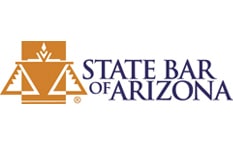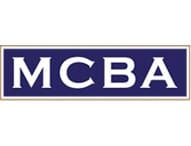Glendale Fraud Charges Defense Attorney
Fraud as a crime refers to several possible actions. It is considered “white-collar crime”, which means it is usually committed by a professional or a person from a respectable background in order to gain money.
There are Several Crimes that Fall Under Fraud
Forgery and identity theft, insurance fraud, credit card fraud, and real estate and mortgage fraud, among others.
Forgery and identity theft refer to forging or counterfeiting IDs and documents and/or impersonating someone either to get money or access a service. Insurance fraud involves making false claims on auto insurance, healthcare insurance, unemployment insurance, and other forms of insurance and welfare services. There is also workers’ compensation fraud in which an employee’s claim might not match his/her actual condition.
Financial fraud can involve credit cards, checks, or securities. Check fraud is committed when a person uses a check to pay for something despite knowing that there is not enough money in the account to cover the cost. Some people also forge checks stolen from someone else. Another prevalent crime is credit card fraud. Perpetrators may obtain other people’s credit card information and use it to make purchases. This can also be considered identity theft.
If you are convicted of fraud, you can face long prison terms and hefty fines. It could be considered a felony or misdemeanor, depending on the accused’s criminal history and the nature of the case itself. This will depend on the laws of each state. It can also result in the revocation of state professional licenses.
First-Time Offenders, Probation Can Be Included
Because fraud usually involves money, the government can seize assets connected to the crime. These may be money, real estate, artwork, or other valuable property. The money can also be in the form of restitution to cover the amount taken from the victim.
Like other crimes, there are several legal elements to proving fraud.
There should be proven misrepresentation and understanding by the accused that they were misrepresenting themselves and that the victim was being fooled. The victim should also have been duped and suffered damages because of the committed fraud.
Fraud defense lawyers, like those from the law offices of Gary L. Rohlwing can help defendants prove their case by disproving the legal elements required. The lawyer can argue that there was no intent on the part of the defendant who wrote a bad check because he/she thought they had the money in their account needed to cover the amount supposedly falsely offered.
Possible Defenses for Fraud Cases
The most basic reason to have a case acquitted is through insufficient evidence. However, this is difficult if the prosecutor has convinced the judge that there is enough evidence to prove fraud or when the judge is convinced that a jury can find the defendant guilty beyond reasonable doubt.
Mistaken identity is another strong argument against fraud. Your lawyer can prove that you were mistakenly identified by a witness or by a false assumption. This is often the case with people who work in accounting.
There are also cases wherein the defendant might have given a false but not fraudulent statement. A mere expression of opinion or a promise to do something in the future is not considered fraud. To be considered fraud, the misleading statement should refer to something that is existing, such as a check or an insurance claim.
Then there is the case of entrapment. Entrapment occurs when an undercover police officer coerces an individual to commit a crime that they would not have committed otherwise. In such cases, the prosecution will usually argue that the defendant was nevertheless inclined to commit the crime. At the same time, a defendant can also claim that they acted under duress or that they were forced to act against their better judgment. However, there should be proof that the defendant’s life was in immediate danger.
A criminal case of fraud can be the basis of a civil case as well so that the victim can be compensated for the damage caused by the misrepresentation.
Fraud cases can often be complicated. That is why defendants should hire experienced criminal trial lawyers. Lawyers such as Gary L. Rohlwing Attorney, with experience in defending fraud cases are able to prepare a strong defense and disprove misrepresentation claims. Other possibilities — such as having a case dismissed because of the expiration of the limitation period — can be explored by such lawyers.







